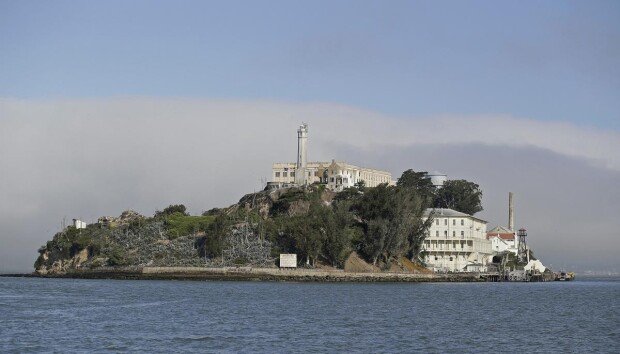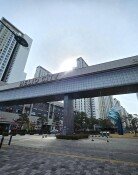Trump proposes reopening Alcatraz for violent criminals
Trump proposes reopening Alcatraz for violent criminals
Posted May. 06, 2025 07:14,
Updated May. 06, 2025 07:14

U.S. President Donald Trump announced on May 4 that he plans to reopen Alcatraz, the notorious island prison off San Francisco, for the first time in 62 years. Known as "The Rock" and "Devil’s Island," Alcatraz was once deemed inescapable. Trump said the facility would house "the most brutal and violent criminals" in the U.S.
The announcement comes in response to recent court rulings that blocked his attempts to deport undocumented immigrants. Trump criticized liberal judges for requiring hearings for deportation cases, and insisted that isolating criminals from society at Alcatraz is the "right way" forward.
On his social media platform, Truth Social, Trump posted, "America has suffered long enough from vicious, violent, repeat-offending criminals—those who bring nothing but pain and misery to our society." He added, “We will no longer tolerate the bloodshed, chaos, and filth spread by habitual offenders.”
Speaking aboard Air Force One the same day, Trump explained that the idea stemmed from court decisions mandating due process for deportation cases. His administration had initially sought to deport immigrants with criminal records to third countries, but legal challenges have forced the government to consider detaining them within the U.S.
Alcatraz, located 1.5 miles off the coast of San Francisco, became famous for its high security and nearly impossible escape attempts, with strong currents and cold waters surrounding the island. The prison was featured in movies such as The Rock and Escape from Alcatraz.
From 1934 to 1963, the federal government used Alcatraz as a maximum-security facility for dangerous offenders. However, due to its high operating costs, nearly three times higher than other prisons, the facility was closed. It was designated a National Historic Landmark in 1971 and has since become a popular tourist attraction.
Trump’s proposal has faced criticism, particularly from Democratic leaders. Former House Speaker Nancy Pelosi, whose district includes San Francisco, dismissed the plan on social media, calling it “not serious” and doubting its feasibility.
김윤진 기자 kyj@donga.com







